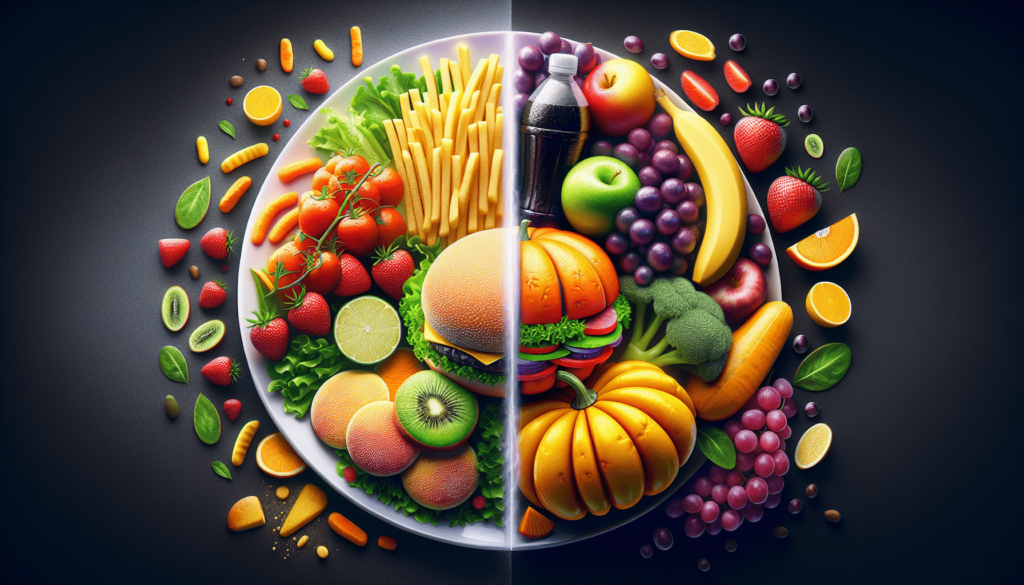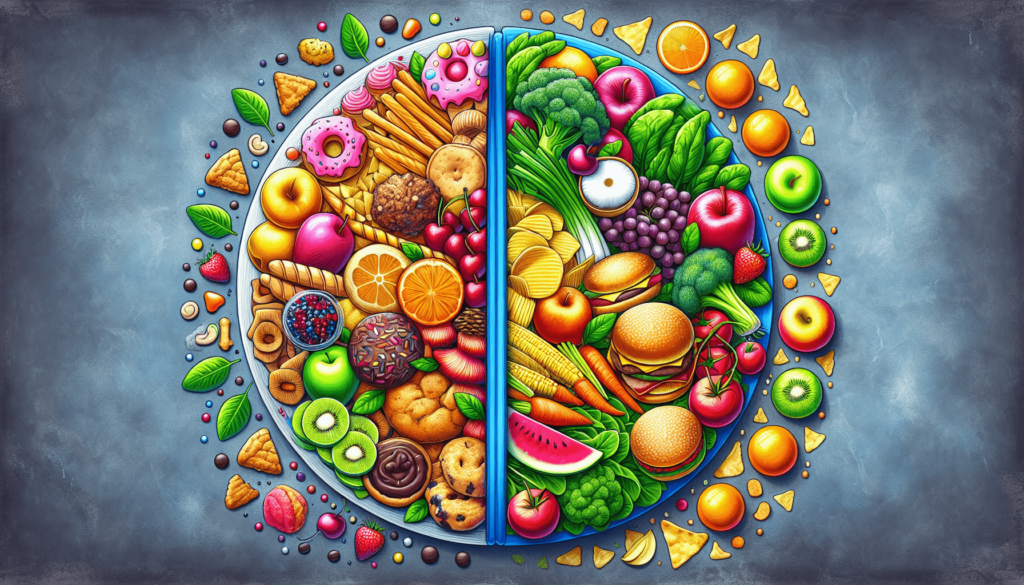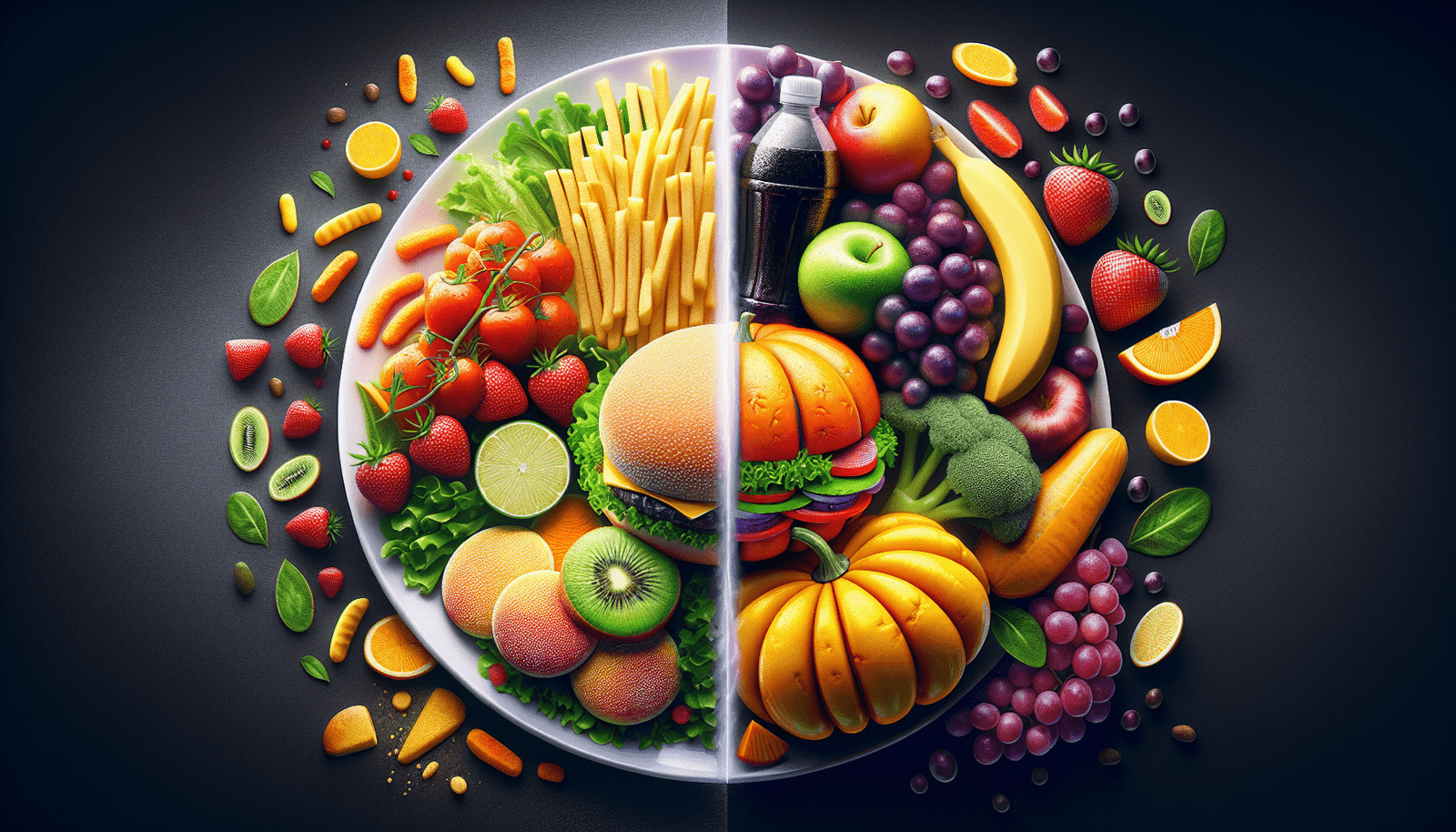Welcome to an eye-opening article that will help you navigate the often confusing world of nutrition. In “Busting Common Nutrition Myths Once and for All,” you will discover the truth behind popular myths that may be hindering your journey to a healthier lifestyle. From debunking fad diets to shedding light on the importance of balance, this article will empower you with the knowledge you need to make informed choices when it comes to your diet. Say goodbye to misinformation and hello to a better understanding of nutrition. Have you ever wondered if the food choices you make every day could be influenced by common nutrition myths? In this article, we will bust some of the most widely believed myths around nutrition and help you separate fact from fiction. Let’s dive right in!

Myth 1: Carbs are the enemy
Many people believe that carbohydrates are bad for you, and avoiding them is the key to weight loss. However, the truth is that carbs are an essential source of energy for your body. The key is to choose complex carbohydrates like whole grains, fruits, and vegetables, instead of simple carbs like sugar and white flour.
Myth 2: Eating fat makes you fat
Contrary to popular belief, eating fat does not necessarily make you gain weight. In fact, healthy fats are an important part of a balanced diet, and can even help you feel full and satisfied. The key is to choose unsaturated fats like those found in avocados, nuts, and olive oil, instead of saturated fats found in processed foods.
You don’t have to avoid fats completely, just make smart choices!
Myth 3: Skipping meals will help you lose weight
Some people believe that skipping meals is an effective way to cut calories and lose weight. However, skipping meals can actually slow down your metabolism and lead to overeating later on. It’s important to fuel your body with regular, nutritious meals and snacks to keep your metabolism running smoothly.

Myth 4: All calories are created equal
While it’s true that weight loss ultimately comes down to calories in versus calories out, not all calories are created equal. The quality of the food you eat plays a big role in your overall health and wellbeing. For example, 100 calories of vegetables will provide much more nutritional value than 100 calories of candy.
Choose nutrient-dense foods to fuel your body and feel your best!
Myth 5: You have to eat meat to get enough protein
Many people believe that meat is the only source of protein, but there are plenty of plant-based sources of protein as well. Beans, lentils, tofu, and quinoa are all excellent sources of protein that can help you meet your daily needs. Plus, plant-based proteins are often lower in saturated fat and cholesterol than animal proteins.
Don’t be afraid to experiment with plant-based proteins in your meals!
Myth 6: Eating late at night will make you gain weight
There is a common belief that eating late at night will cause you to gain weight, but the truth is that it’s not necessarily the timing of your meals that matters, but the overall quality and quantity of what you eat. It’s fine to have a small, nutritious snack before bed if you’re truly hungry, just make sure it’s something light and healthy.
Listen to your body’s hunger cues and eat when you’re truly hungry, regardless of the time.
Myth 7: You can out-exercise a bad diet
While exercise is an important part of a healthy lifestyle, you can’t out-exercise a bad diet. No amount of time in the gym can undo the damage of consistently eating unhealthy foods. It’s important to focus on both exercise and nutrition in order to achieve and maintain a healthy weight.
Remember, you can’t outrun a poor diet, so make sure to fuel your body with the right foods!
Myth 8: It’s impossible to eat healthy on a budget
Many people believe that eating healthy is expensive, but with some planning and creativity, it’s possible to make nutritious meals on a budget. Buying seasonal produce, shopping sales, and buying in bulk can all help you save money while still eating nutritious foods.
Eating healthy doesn’t have to break the bank – with a little creativity, you can eat well on a budget!
Myth 9: Detox diets are an effective way to cleanse your body
Detox diets are a popular trend, with many people believing that they can help cleanse the body of toxins and jumpstart weight loss. However, there is little scientific evidence to support the idea that detox diets are effective. Your body is already equipped with organs like the liver and kidneys that detoxify your body naturally.
Focus on eating a balanced diet rich in fruits, vegetables, and whole grains to support your body’s natural detoxification processes.
Myth 10: Supplements can make up for a poor diet
While supplements can be helpful in certain situations, such as for pregnant women or people with specific nutrient deficiencies, they are not a replacement for a healthy diet. Your body is designed to absorb and utilize nutrients from food, so it’s important to focus on eating a wide variety of nutritious foods to get all the vitamins and minerals you need.
Supplements should complement a healthy diet, not replace it entirely. Focus on getting your nutrients from whole foods whenever possible.
By debunking these common nutrition myths, you can make more informed choices about your diet and overall health. Remember, it’s important to listen to your body’s cues, eat a balanced diet rich in whole foods, and focus on long-term health and wellness. With the right knowledge and mindset, you can achieve your health and nutrition goals.

